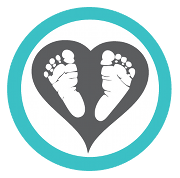"About 50% of women have nausea and vomiting in early pregnancy, and an additional 25% have nausea alone," writes Jennifer R. Niebyl, MD, from the University of Iowa Hospitals and Clinics in Iowa City.
Dietary counseling to eat small amounts of food several times a day may be helpful, as well as to avoid exposure to odors, foods, or supplements that appear to trigger nausea, particularly fatty or spicy foods and iron tablets. Other helpful strategies may include eating and drinking fluids between meals or eating bland, dry, and high-protein foods.
n some women, alternative therapy remedies such as ginger and acupuncture may be effective, and these may be given at any point during the pregnancy.For nausea and vomiting accompanying weight loss in the first trimester of pregnancy, pharmacologic therapy is indicated. Approximately 10% of women with nausea and vomiting in pregnancy require medication.
Evidence from randomized trials supports the use of vitamin B6 (pyridoxine), 10 to 25 mg every 8 hours, and doxylamine, 25 mg at bedtime and 12.5 mg each in the morning and afternoon. Unisom SleepTabs (Sanofi Aventis; oral vitamin B6 and doxylamine), which are available over the counter in the United States, have been studied in more than 6000 patients and control participants, with no evidence of teratogenicity. In randomized trials, this combination has been associated with a 70% reduction in nausea and vomiting, and the American College of Obstetricians and Gynecologists therefore recommends it as first-line therapy for nausea and vomiting in pregnancy." (Medscape)
Continuing nausea and/or vomiting that does not respond to the above regimen may require prescription medication. There are several options so this should be discussed with your health care provider. If dehydration occurs along with electrolyte imbalance, more aggressive treatment may be needed but IV therapy has its risks (infection is the most common) so this should only be used when there is a weight loss greater than 5% and in those who have not responded to these less invasive treatments. This is considered to be hyperemesis gravidarum. In some cases a single IV rehydration is all that is needed to reduce the risk of dehydration.























No comments:
Post a Comment
This blog only reviews comments before posting to avoid hijacking. We will respond to comments Mon-Thurs but we are closed Fri-Sun and legal holidays.